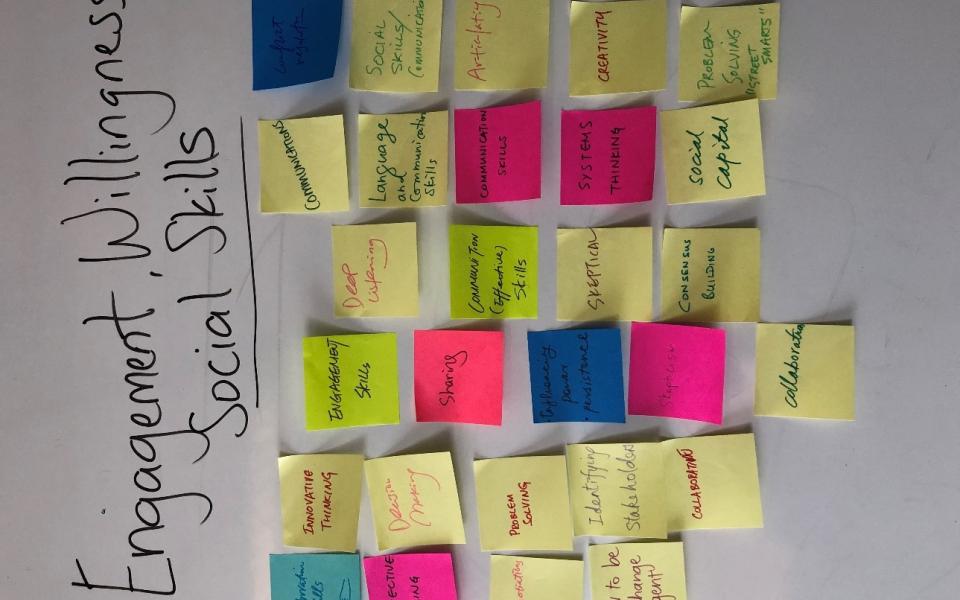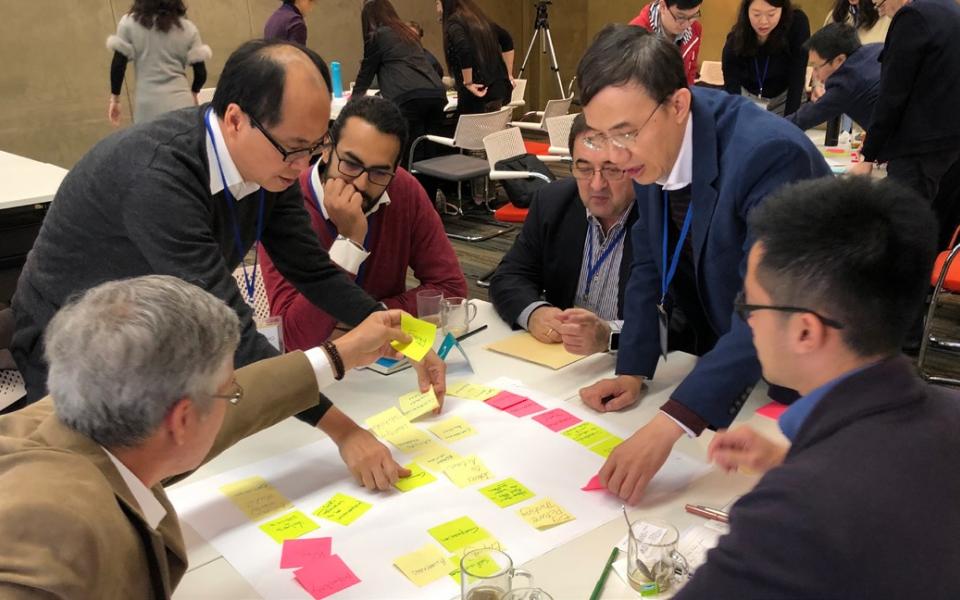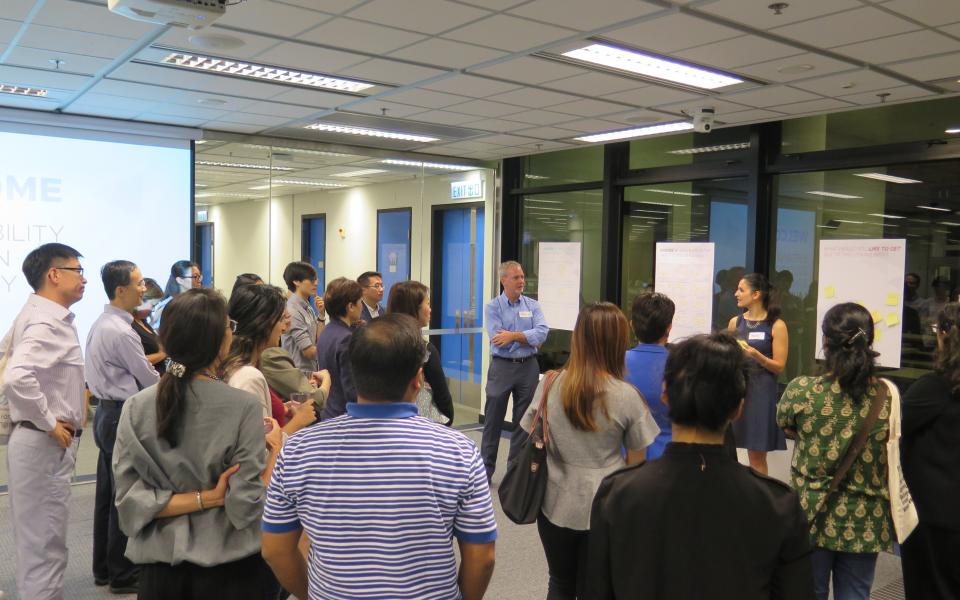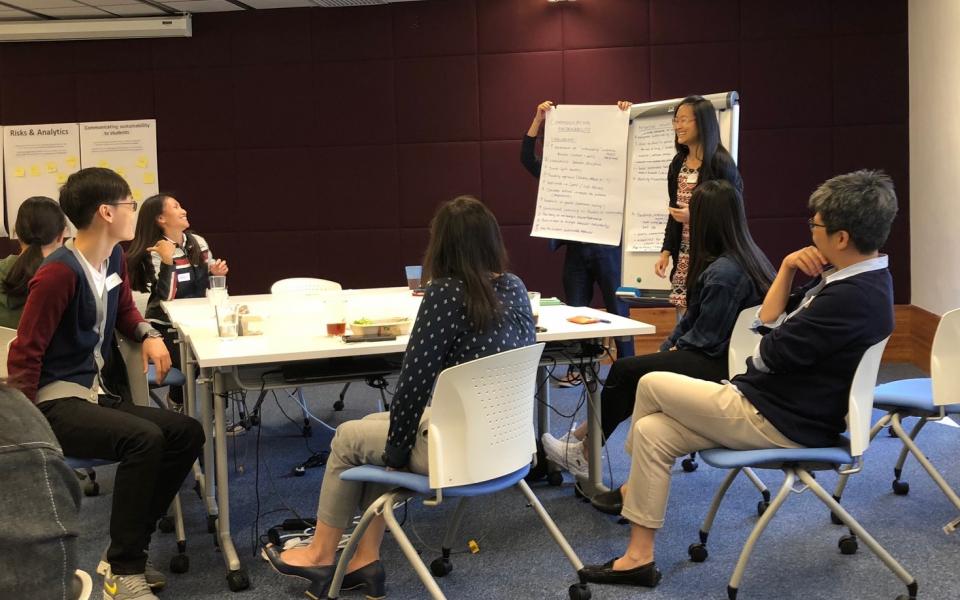HKUST 2020 Sustainability Challenge
The HKUST 2020 Sustainability Challenge was initiated in 2014-15 as an ambitious plan to demonstrate sustainability leadership in four areas: reducing energy consumption and waste (Operations); setting up campus-wide networks to drive sustainability actions and policies (Communities); designing and implementing novel eco-applications on site (Demonstration); and building an educational and research framework to ensure students graduate with a commitment to sustainability (Education). Each of the focus areas included specific goals which were detailed and measurable. Click here to read the action plan.
Operations Goal
The Challenge identified two specific operations targets: reducing waste to the landfill by 50% and reducing energy consumption by 10% using 2014-15 as the baseline year.
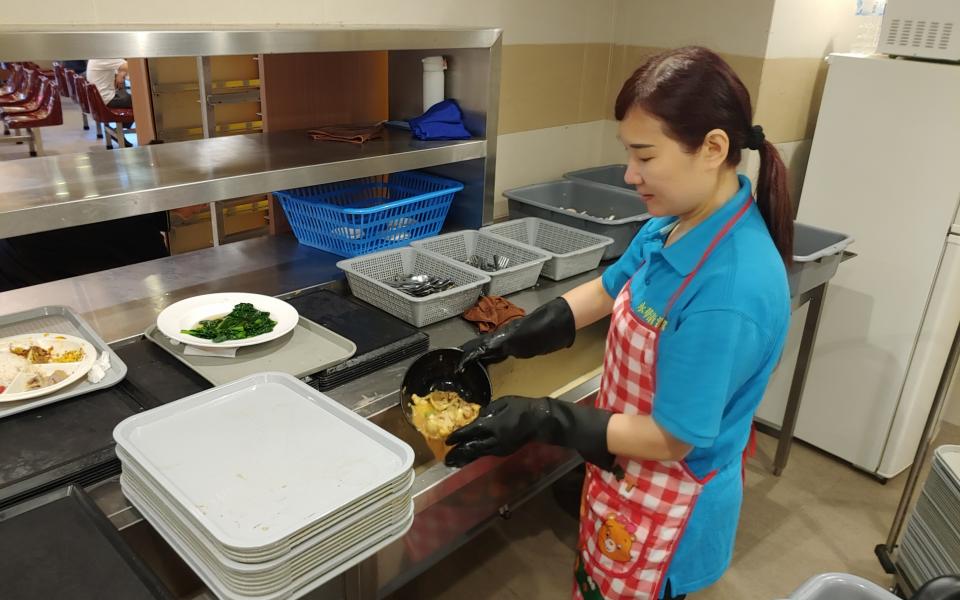
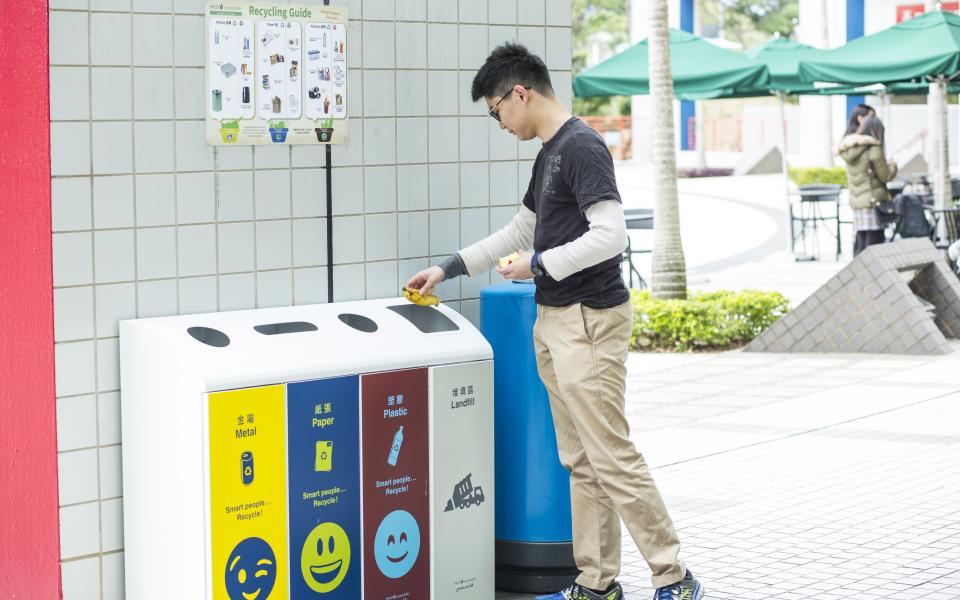

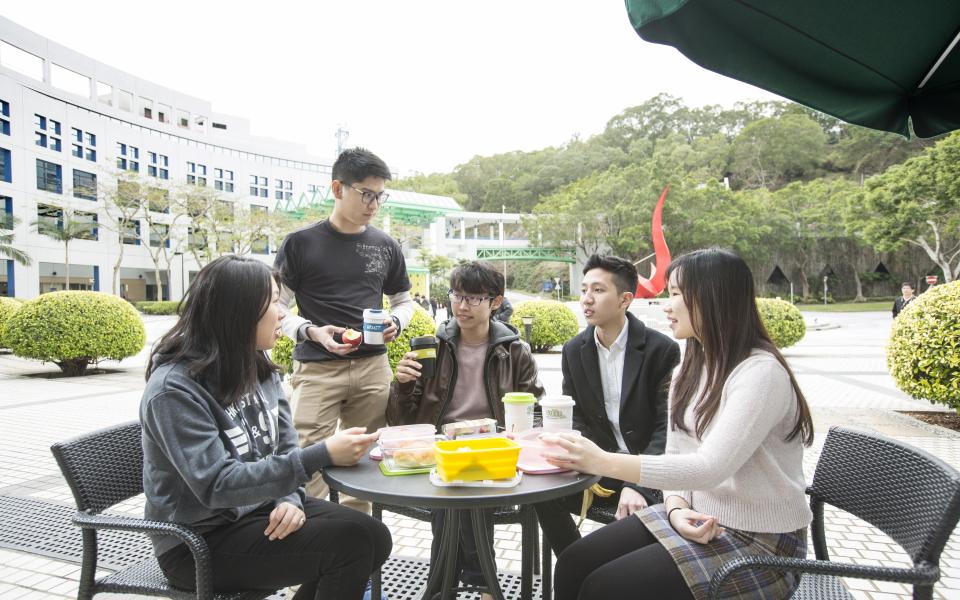
Community Goal
The 2020 Challenge objective was to “create an HKUST Sustainability Network to form a core social backbone to support and advance sustainability actions and policies across departments, schools, and the campus.”
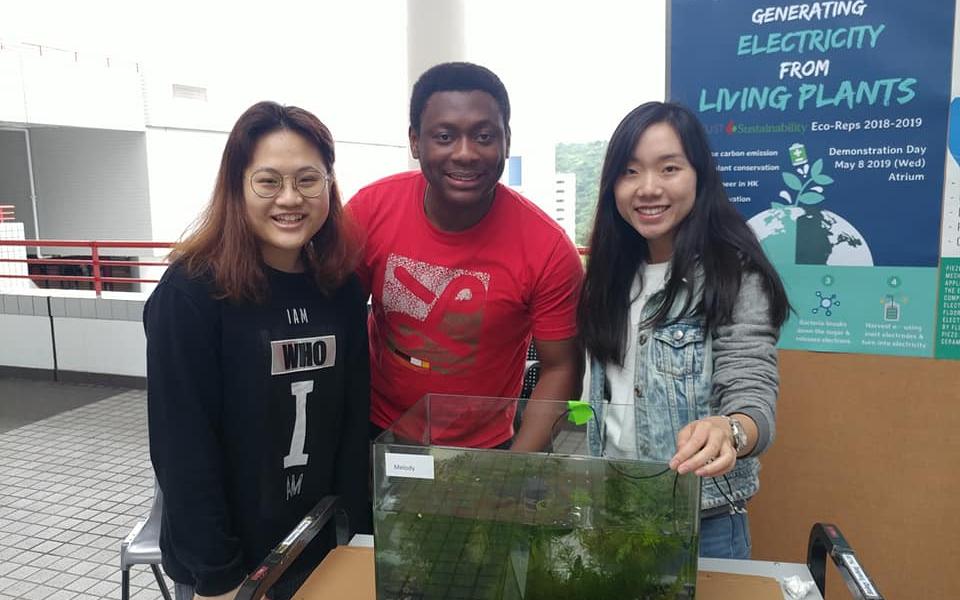
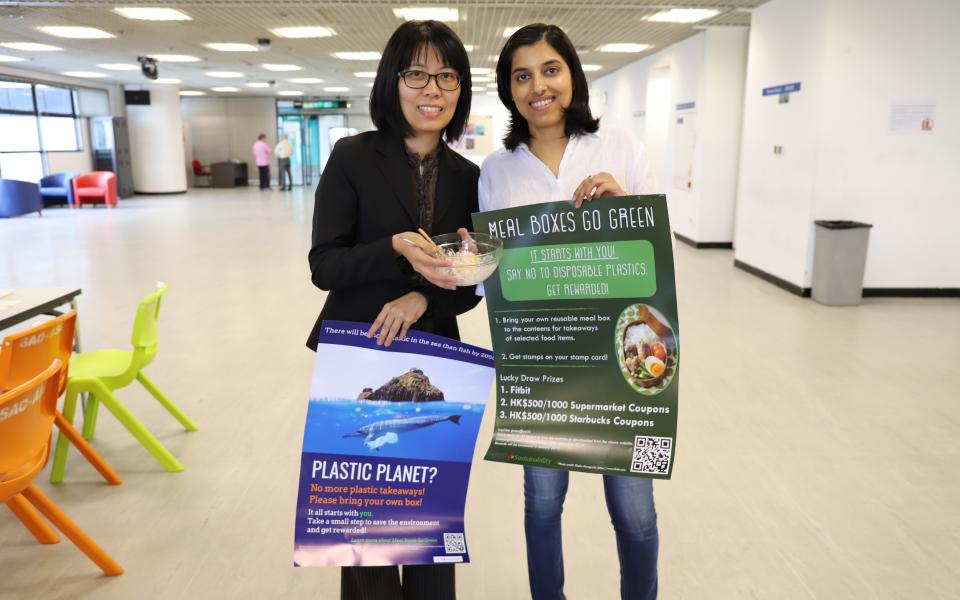
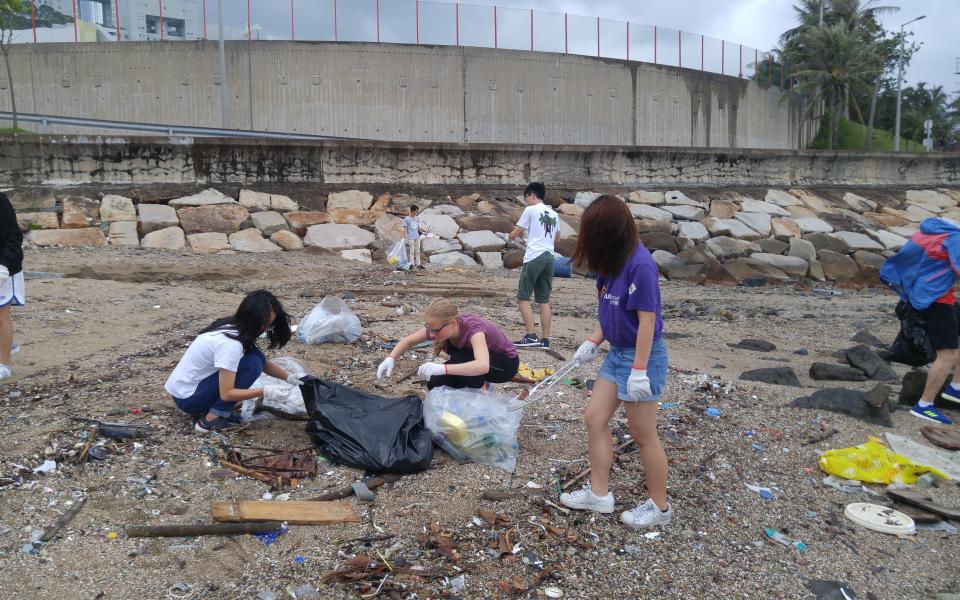

Demonstration Goal
The 2020 Challenge objective was to “develop visible on-site demonstration projects that contribute to campus sustainability goals while showcasing the work of HKUST researchers as contributors to solving global sustainability challenges.”
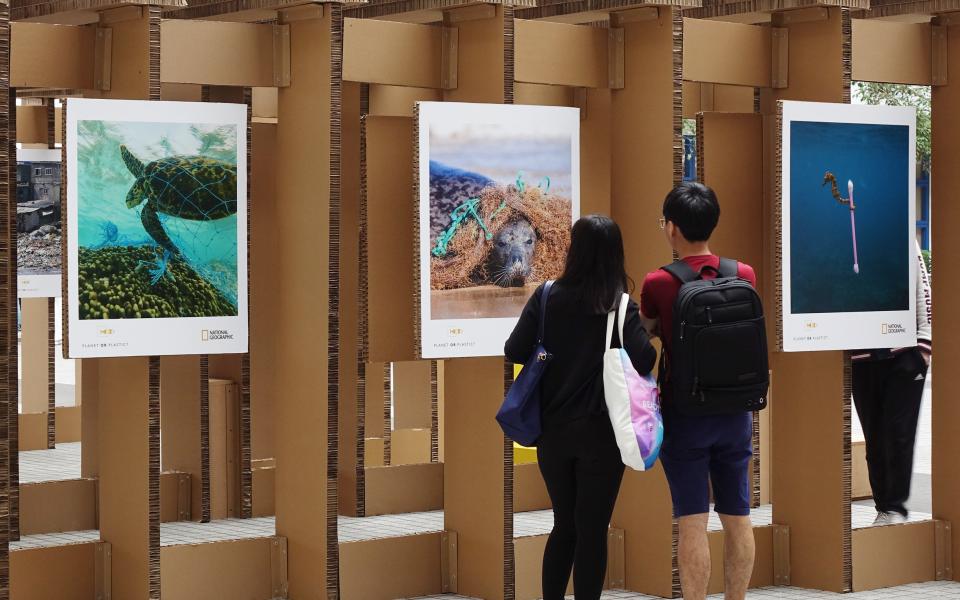
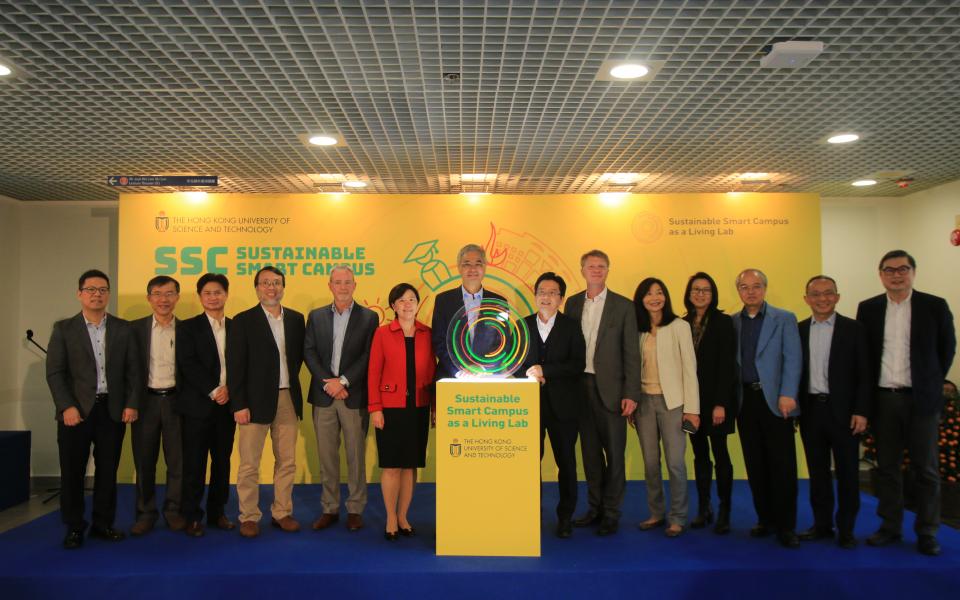
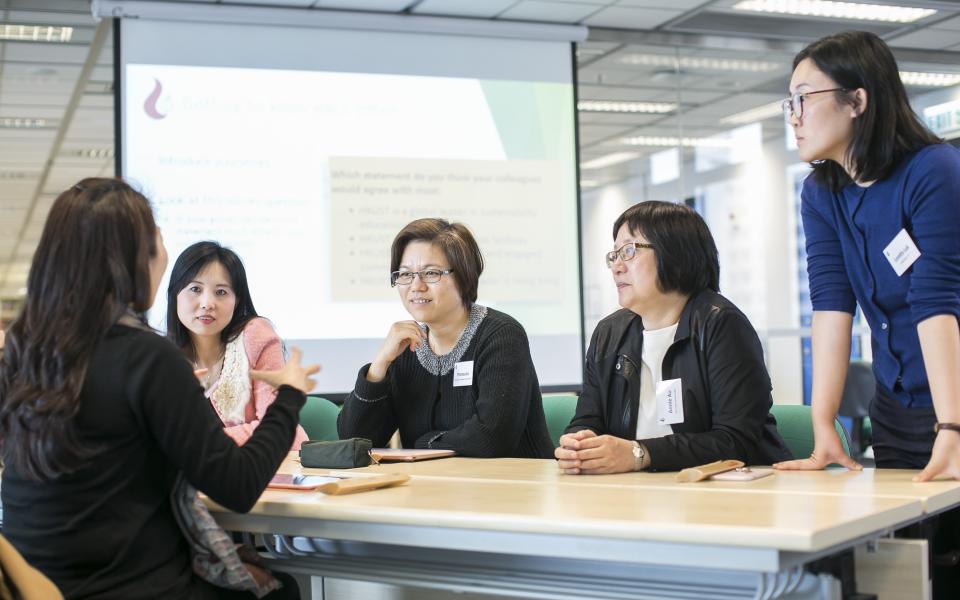
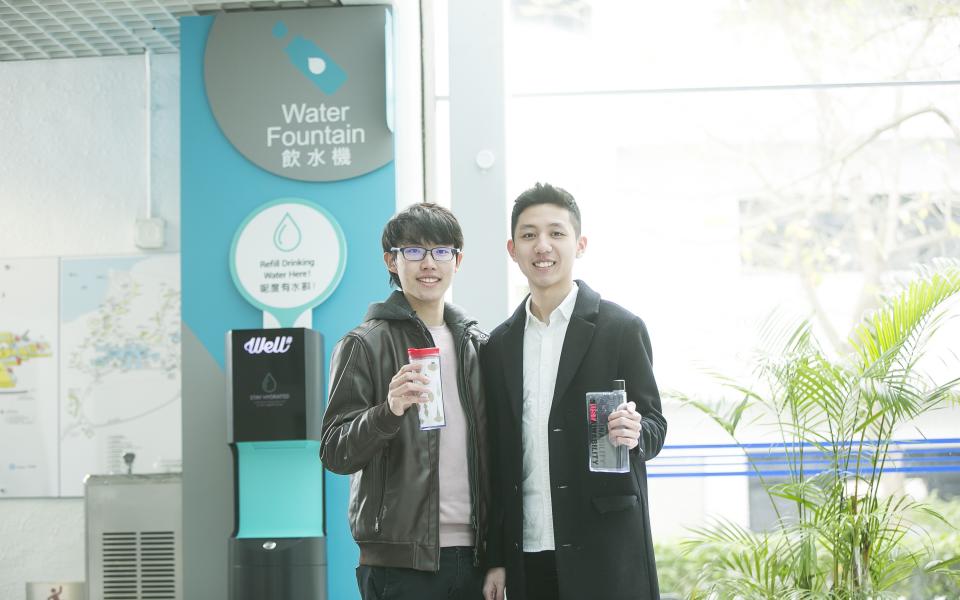
Education Goal
By 2020 we will have an educational and research framework ensuring that students gain a solid understanding of sustainability concepts and graduate with the capacity and commitment to solve problems locally and globally. Leadership provided by the Provost.
The immediate objectives are to (1) construct a sustainability curricular framework; (2) strengthen the administrative and academic connections between the operations and academic sectors of the university to help develop the physical capacity to utilize the campus and grounds as a “living laboratory” for experiential learning in sustainability; and (3) strengthen the support networks available to faculty members to assist with teaching sustainability across different disciplines and curricula.
